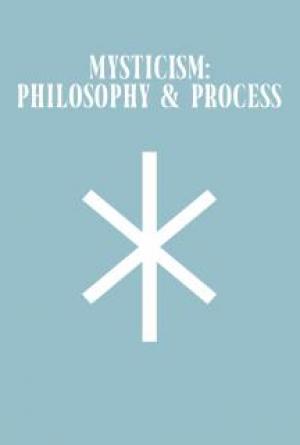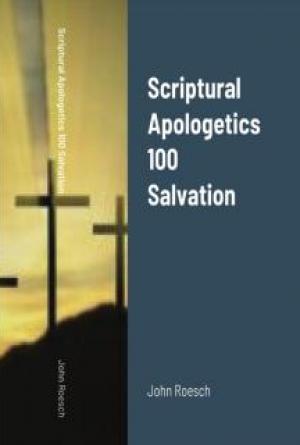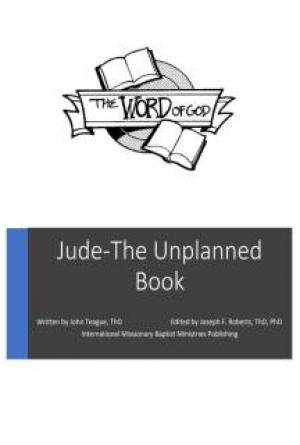The War of Gog and Magog
(A New Translation and Commentary)
by Richie Cooley
Licensed by:
Richie Cooley (2018)
Creative Commons: Attribution 4.0 International
Email: richieacooley@live.com
Some Old Testament Scripture is taken from the NEW AMERICAN STANDARD BIBLE® (NASB), copyright © 1960, 1962, 1963, 1968, 1971, 1972, 1973, 1975, 1977, 1995 by The Lockman Foundation. Used by permission.
New Testament Scripture is taken from the Analytical-Literal Translation of the New Testament: Third Edition (ALT3). Copyright © 2007 by Gary F. Zeolla of Darkness to Light ministry. Previously copyrighted © 1999, 2001, 2005 by Gary Zeolla.
Table of Contents
I. A Detailed Description
II. Ezekiel 38:1-6
III. Ezekiel 38:7-9
IV. Ezekiel 38:10-13
V. Ezekiel 38:14-16
VI. Ezekiel 38:17-23
VII. Ezekiel 39:1-6
VIII. Ezekiel 39:7-10
IX. Ezekiel 39:11-16
X. Ezekiel 39:17-20
XI. Ezekiel 39:21-24
XII. Ezekiel 39:25-29
XIII. Just the Beginning
XIV. Citations
Before getting started, let’s review a few notes …
*This work mostly uses British spelling, except for the quoted material, which often employs U.S. spelling.
*Unless otherwise stated, the Old Testament quotes (apart from Ezekiel 38-39) are from the NASB and the New Testament quotes are from the ALT3.
*“LORD” or “Jehovah” signifies the personal name of God, more accurately rendered Y-h-w-h.
*The ALT3 distinguishes between singular and plural second-person pronouns by means of an asterisk (*).
*Divine pronouns are normally not capitalized, unless they appear that way in Bible versions or other quotes.
*Words that appear in brackets within quotes are not found in the original texts, and were added by the translators or are my personal comments, etc.
*When it comes to quotation marks within the text of Ezekiel 38-39, each paragraph is treated separately and is just provided for a point of reference.
*My translation seeks to be very literal, but not overly cumbersome. For one reason or another, participles and infinitives are probably the main points of departure from super-consistent strictness. As for finite verbs, I try to aim for uniformity with tenses, which leaves the renderings a bit underdone around the edges.
I. A Detailed Description
I invite you to join me as I go through a sizable portion of the book of Ezekiel. It details one of the most important eschatological events on the radar. We will be reviewing chapters 38 and 39, which describe a massive invasion of the nation of Israel towards the end of the age. It is popularly called, ‘The War of Gog and Magog.’
This Hebrew text was written over 2,500 years ago by a Jewish captive in the midst of Babylonian incursions. It is an extremely ancient prophecy, and even now it is amazingly accurate. Of course it is yet to be fulfilled, but when you read this passage, a few things leap out. First of all, the current geopolitical structure is exactly the way Ezekiel depicted it over two millennia ago. That in and of itself is amazing.
Yet also keep in mind the general hues and themes of what you’re reading. It all seems incredibly modern and incredibly plausible. Now imagine if you were tasked to sit down and write of a war that was to occur in the year AD 4600. What kind of job do you think you would do? Would you believe that the nation of Israel even existed? Would you not rather envisage a planetary system of George Jetsons? Could you possibly manage to describe a clean-up effort which would ring plausible in AD 4600?
As we go through these Scriptures do not lose sight of the antiquity of the book. Ezekiel didn’t have the internet. He didn’t know anything about Russia nor the Arab League nor the way the world would work in the twenty-first century. He was only a few decades old and his entire social structure had been crumbling throughout his lifetime. He was not some genius, ultra-educated game theorist. He was a prophet. The Holy Spirit of the Only True God spoke through him, as we will see…
II. Ezekiel 38:1-6
And the word of Jehovah was to me saying, “Son of man, set your face toward [or, “against”] Gog of the land of Magog, the chief head(A) of [or, “the chief of the head of” or “the chief of Rosh,”] Meshech and Tubal; and prophesy against him, and you are to say: ‘Thus said [the] Lord Jehovah, “Behold, I [am] against you [O] Gog, the chief head of [or, “the chief of the head of” or “the chief of Rosh,”] Meshech and Tubal. And I will turn you about and put hooks(B) in your jaws; and I will bring you out, and all your army—horses and horsemen, all of them fully attired, a great assembly [with] large and small shields, wielding swords—all of them. Persia, Cush, and Put [are] among [or, “with”] them, all of them [with] shield and helmet; Gomer and all its [or, “her”] troops, Beth-togarmah [from] [the] remote parts of [the] north, and all its [or, “his”] troops—many peoples [are] with you!”’”
Textual Notes:
(A)The “chief head” or the “chief of Rosh” is a fascinating title no matter what way you slice it. The major dividing line has to do with the meaning of rosh. This is a word that has been transliterated directly from the Hebrew. It normally means “head,” hence when it is combined with another word for a leader (nassi), many translators render it “chief prince” (cf. the English Standard Version; compared to my translation, they render “rosh/head” as “chief” and “chief” as “prince,” basically). However, it is slightly odd to have these two words denoting leadership crammed together, although it isn’t unheard of (cf. 1 Chronicles 7:40; albeit the order of the Hebrew words is reversed). Thus, many think that this is an actual futuristic-foreign-proper-noun, hence “Russia.” The Hebrew certainly lends credence to this view, as I think my rendering is slightly less natural. Because of the construction, the great Hebrew scholar Wilhem Gensenius believed rosh to be a proper name.
It really is a coin toss either way. I’ve searched through the Hebrew Old Testament, trying to find some smoking gun that would force the translation one way or the other. I didn’t come up with anything. In the end however, Ezekiel is fairly fond of the words rendered “chief” and “head,” and uses them consistently in normal ways. Rosh never appears anywhere else as a national proper noun—neither in the book of Ezekiel, nor anywhere else (although it is a name of someone in Genesis 46:21). Hence I lean towards “chief head,” although it may be slightly contrived.
Yet even “chief head” (or some close equivalent) is noteworthy. It is a description which combines rosh with nassi. The Hebrew word nassi is just a general term for a leader, being based upon the common Hebrew verb which means “to lift up.” It also is consistently used to describe princes, hence many lexicons and translations follow that path. However, I like William Holladay’s more broad definition of “chief” or “minor king” (pg. 247). So this “Gog” is the chief head. That certainly is a possible way to depict the modern political set-up, where many nations no longer have actual, potent kings, but have some sort of congressional or parliamentary system with an executive leader atop.
Yet more importantly, since “Meshech” and “Tubal” should probably be identified with Turkey, unless that nation fades into Russia one day, it wouldn’t make any sense to translate “rosh” as Russia. It would make sense if “chief head” simply is the designated person who is wielding control over Turkey’s army, which would fall to the head of the coalition, whomever that may be.
(B) The TWOT (see 620b) says this “refers to hooks or rings used to capture and control men, employing the methods normally used to handle animals. The warning against Sennacherib (II Kgs 19:28; Isa 37:29) may possibly be drawn from actual practice, as we have an Assyrian relief of captives with a ring through the lips…”
It speaks of God’s controlling hand in this matter. As a conquering ruler would subjugate people and lead them away through attaching an appendage to their face, so God is actually the one leading Gog and his army. Gog believes to be a bold, impetuous visionary; actually, all his actions are being ordained by heaven.
This expression could also imply that something will happen which causes Gog to feel overwhelmingly compelled to make this raid. There is an additional hint along these lines further down the text. Perhaps another skirmish precedes this one, or perhaps the War of Gog and Magog is going to take place soon after a major act of God, such as the Rapture of the Church.
It was popular a few years ago to make much over prophecies regarding Syria, and some speculated that a conflict involving this nation could precede Gog/Magog. I myself thought these were interesting ideas, but now I’m not so sure. I’m now slightly more inclined that the better explanation for the “hook” is the falling of Israel’s defences at the time of the Rapture.
Commentary:
So we have this massive war machine. There are many armies who are wearing full metal jackets, so to speak. This isn’t a ragtag group of wanderers, but proper military divisions are employed with the uniforms and equipment of national states.
Let’s take a step back and consider the full context of this passage. In the previous section of the book of Ezekiel, God promises to bring Israel back to its own land after the diaspora. Then we have these two chapters dealing with a massive invasion. Following this, there is the sketch of the Messianic Age which continues unto the end of the book (chapters 40-48).
Someone therefore could make the knee-jerk assumption that when this war concludes, then so does the age. That is not the case. This war will only help to usher in the tribulation period (see my other free writings for more about this era). Yet I believe that the enemies of the Lord will proclaim that the Kingdom of God has come at that time. Thus, the Antichrist is the real Christ, and the world must align itself under his rule. That’s probably why Paul put so much emphasis on not believing the Day of Jehovah had come (2 Thessalonians 2:1-4). This will probably be a popular lie.
I point that out now because as we go through these chapters, note how they greatly differ from the description of the Battle of Armageddon (Revelation 19, 16:12-20, 14:17-20; Joel 3 [4 in the Hebrew]; Zechariah 12-14). These are obviously two completely different conflicts. The War of Gog and Magog happens at the beginning and features a few specific nations, whereas the Battle of Armageddon comes at the end and involves every nation. Just what nations are going to take part in the War of Gog and Magog?
“Persia” is modern Iran, and “Cush” is north-east Africa, south of Egypt (i.e., Sudan). The Baker Illustrated Bible Dictionary says it is Sudan (pg. 669). According to the same source, “Put” is Libya (pg. 2363), “Gomer” is southern Russia (pg. 1181), “Beth-togarmah” is (perhaps) Armenia (pg. 355), and “Meshech” is (probably) Asia Minor/Turkey (pg. 1939), as is (probably) “Tubal” (pg. 2843). These locations (more or less) are also the ones given in other popular evangelical resources, such as John MacArthur’s Study Bible and Unger’s Bible Handbook.
So looking at a map, Israel is cornered by Iran to the east, Turkey to the north, Libya to the west, and Sudan to the south.
Just what is meant by “Magog” is a bit trickier. This probably does actually refer to Russia. Most commentators cite Josephus at this point, as does Ralph Alexander…
“Magog,” associated with the Japhetic line in the table of nations in Genesis 10, is referred to by Josephus (Antiquities of the Jews, 1.6.1) as the Scythians who lived in an area around the Black and Caspian seas. This view is most generally accepted. (from chapter 4)
Mark Hitchcock also elaborates on the ancient quote…
Flavius Josephus, the Jewish historian, says the ancient Scythians inhabited the land of Magog. The Scythians were ruthless northern nomadic tribes who inhabited a large swath of territory encompassing Central Asia and the southern steppes of modern Russia. Magog today includes five former Soviet republics: Kazakhstan, Kyrgyzstan, Uzbekistan, Turkmenistan, and Tajikistan. Afghanistan could also be part of this territory. These nations, with a combined population of more than sixty million, are all Islamic.
Many believe ancient Magog also includes what today is Russia. The Nelson Study Bible describes Magog as “usually understood to be in the area near the Black Sea or the Caspian Sea. Magog is one of the sons of Japheth, whose descendants occupied lands from Spain to Asia Minor, the islands of the Mediterranean to southern Russia.”
Charles Ryrie says, “Magog was identified by Josephus as the land of the Scythians, the region N and NE of the Black Sea and E of the Caspian Sea (now occupied by three members of the Commonwealth of Independent States: Russia, the Ukraine, and Kazakhstan).” Referring to Magog, Rosh, Meshech, and Tubal, Arnold Fruchtenbaum says, “These tribes of the ancient world occupied the areas of modern day Russia.” John MacArthur, referring to Ezekiel 38:2, says, “The names of ancient peoples are given who lived in northern Mesopotamia and the Caucasus region of modern Russia.”
Ancient Magog included land that today is in Russia. (pgs. 34-35)
Since Josephus proves that this was the common understanding in the first century and since every student of the Old Testament knew of the War of Gog and Magog, I’ve often wondered if this is why Paul singled out the Scythians at one point. It would be as if he was saying that even the hordes of Gog are not to be looked upon with hateful enmity…
Stop lying to one another, having put off the old [or, former] person with his practices, and having put on the new [person], the [one] being renewed in full [or, true] knowledge according to [the] image of the One having created him, where there is not Greek and Jew, circumcision and uncircumcision, foreigner, Scythian, slave, [or] free person, but Christ [is] all [things] and in all [things]. -- Colossians 3:9-11
So again, there is going to be a major invasion from the north, south, east and west, and it will be headed up by a chief leader towards the northern quarter. This interpretation is further confirmed by the description of another Gog/Magog war in the New Testament. John uses the phrase in the book of Revelation as being synonymous with an invasion from four directions…
And he [Satan] will go out to lead the nations astray [fig., to deceive the nations], the [ones] in the four corners of the earth, Gog and Magog, to gather them together for the war, of whom the number [is] like the sand of the sea. -- Revelation 20:8
Contrary to the opinion of many, this is a completely different war from the one we’re discussing, as the context of these passages have absolutely nothing in common. Yet their great number (like the sand of the sea) and their general location (the four corners of the earth), earn this latter incursion the self-same title.
As for the meaning of “Gog,” nothing is known with any real certainty. John didn’t seem to attach any specific weight to it. There are a couple of interesting places where the title occurs in the Septuagint (cf. Numbers 24:7 and Amos 7:1), but the Hebrew doesn’t support these glosses. It was the actual name of an Israelite in 1 Chronicles 5:4. Thus, it’s best just to see it as a specific title or cognomen tied to this particular passage, as the NASB Exhaustive Concordance says it is simply a “leader of a northern nation” (pg. 1376). Feyerabend pretty much says the same thing (pg. 56). Perhaps the linguistic similarities to Magog, goyim (gentiles), Agag, and Og, played a part in Ezekiel’s usage, the latter two being famous enemy kings.
Although it would be disputed by many, according to Alfred Jones, it means “extension” or “roof” (pg. 132). That is a very attractive idea, as if the roof of the nations is falling upon the head of Israel.
III. Ezekiel 38:7-9
Be prepared and make yourself ready—you and all your assembly, the ones being assembled about you, and you will be to them for a guard. After many days you will be called up(A)[or, “visited”]; at the end of the years you will come in against a land [that is] restored from [the] sword, [having been] gathered from many peoples, unto [or, “upon,” “about”] the mountains of Israel which were for a site of perpetual ruins; and [or, “she;” i.e., the people of Israel] was brought out from [the] peoples, and they are dwelling unto security(B) [i.e., “they are dwelling securely”]—all of them. And you will go up; you will come in like the storm(C); you will be like the cloud-mass to cover the land [or, “earth”]—you and all your troops, and many peoples with you.
Textual Notes:
(A) For this meaning of the Niphal, see Holladay (pg. 296).
(B) It’s the practice of most translations to ignore the preposition and then to render the noun as an adverb, hence dwelling “securely.” That’s all fine and well, but I prefer to leave the text in the most







